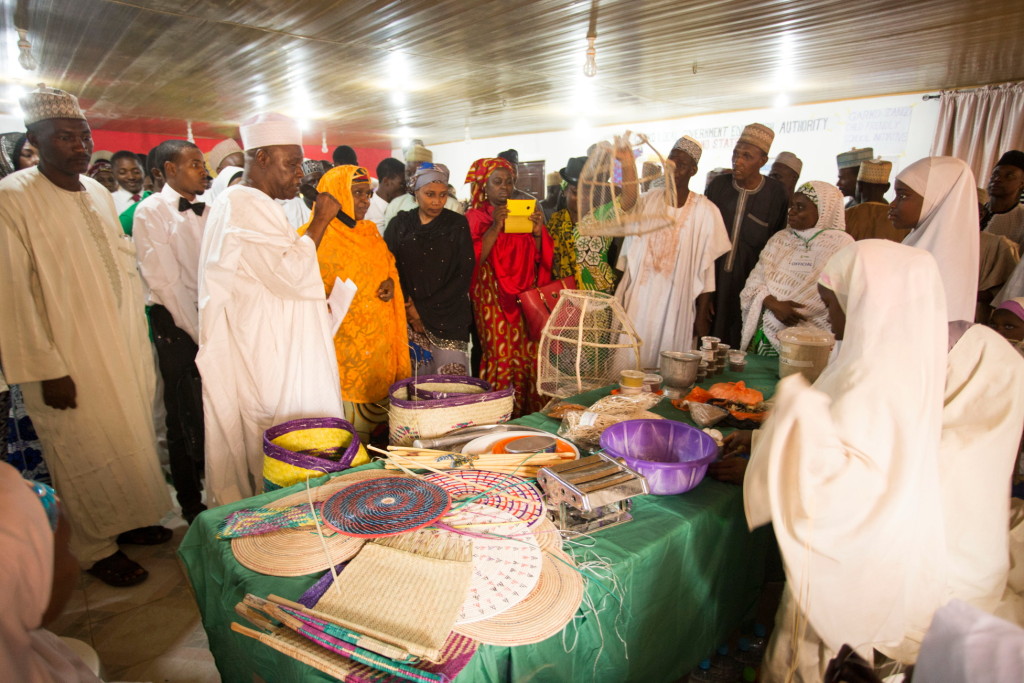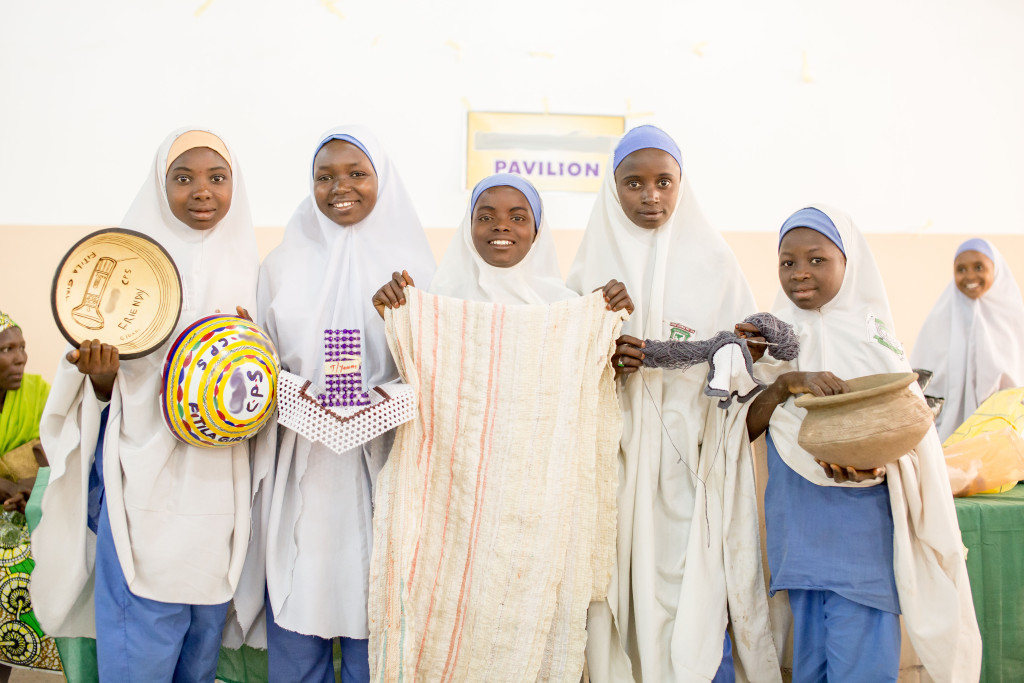
From soap to pottery to incubators: Girls are maximizing their education through Girls’ Associations
“With the coming of [the Discovery Project], there is a program I watched. Looking at that, I thought ‘Why should I not go to school? I would become someone in future who would help my community. I want to be a doctor. If I become a doctor, I will surely help my community.” –Girls’ Association member
On March 31, 2016 the Kano State Universal Basic Education Board (SUBEB) in Nigeria hosted an exhibition showcasing the work of Discovery Project-supported Fitila Girls’ Associations. The Discovery Project, a unique public-private partnership between Discovery Communications (parent company of Discovery Channel, Animal Planet, TLC, etc.) and the UK Department for International Development (DFID) to improve education and life opportunities for marginalized girls in Ghana, Kenya and Nigeria. This exhibition was organized to showcase the achievements of select associations from each of the 15 Local Government Areas (LGAs) in which the project works-- some associations choose income-generation projects, making products like soap, jewelry and embroidery to raise funds for the association and the school. Others focus on mentorship, counseling and studying. Still others engage in activities to develop creativity and communications skills, like poetry reading and writing. To date, the project has spawned 368 associations, far surpassing expectations.
The Discovery Project uses its core offerings of video Learning Centers, teacher training and community engagement as a springboard to improve the quality of teaching, further community support for education for all – including the formation of associations for girls both in and out of school – and increase girls’ motivation to learn, future ambitions, and life skills. Association activities boost the self-confidence of the girls, showing them that they can accomplish goals and develop their full potential.
The event included more than 600 attendees, including representatives from 45 Girls’ Associations, government officials, SUBEB representatives, other NGOs and media. The Girls’ Associations were chosen (three per LGA) by their Local Government Education Authority.
“We have seen what the children have produced, and if they continue this way, they are going to learn lifelong trades, which will carry them through their next levels of education and through life,” said Zakari Bagwai, Executive Chairman of State Universal Education Board (SUBEB) Kano (SUBEB is Fitila’s main government partner).
 Kano SUBEB Chairman Zakari Bagwai walks attendees to each Girls’ Association display, where the girls explain their association activities and products.
Kano SUBEB Chairman Zakari Bagwai walks attendees to each Girls’ Association display, where the girls explain their association activities and products.
The exhibition was organized as a competition, with the three highest-rated associations receiving a beautiful trophy. After statements by government representatives and NGO partners, the SUBEB Chairman led attendees to visit the 15 LGA booths. The girls, with their mentors and teachers, explained their products and activities to a room full of people.
The girls’ economic activities ranged from beadwork, tailoring, pottery and soapmaking to more singular offerings like a chick incubator made from an old refrigerator and handmade fish traps from a LGA with waterways. Several exhibits included live demonstrations, including cooking, weaving, pot-making and calabash painting. The Q&A at each pavilion offered a chance for the girls to talk about how the associations have affected their interest in education and commitment to schoolwork as well, such as through study and discussion groups, and how the Learning Centers are helping them learn.
 The winning girls’ association showcases their first place products.
The winning girls’ association showcases their first place products.
Following scoring on the originality of their products, the sources of the materials and their presentations, the winning associations were announced in the main hall, where the girls and their mentors excitedly received their trophies accompanied by celebratory drumming and dancing.
“We are very much aware of the wonderful work the Discovery Project is doing in Kano State,” said Hajia Yardada Maikano Bichi, Executive Secretary, Kano State Agency for Mass Education, speaking on behalf of the Deputy Governor of Kano State. “We commend the project and DFID for all the great contributions going on in support of our relationship. Kano State government appreciates your support and will press DFID to consider extending and expanding this project to all our 44 LGAs.”